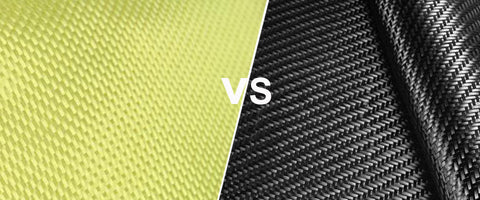I recently watched a history program where scientists were studying ten-thousand-year-old Mesolithic footprints on a beach in Wales. Imagine if our carbon footprint was to last that long. Like a Terry Gillingham-style foot smashing down on the earth and leaving an indelible print still there ten millennia later.
Reducing our carbon footprint isn't a new concept, and it's much easier now for companies and individuals to save energy and erase some of the damage.
As a tech-lover, I once thought that owning the newest gadget and also being green was an oxymoron, but this isn't true at all. You don't need to grow your hair long and play the acoustic guitar. We can actually utilize our love of technology to reduce our carbon footprint.
Firstly, What is a Carbon Footprint?
A carbon footprint is the total amount of greenhouse gases, such as carbon dioxide, and methane made every time we do something. These gases are then trapped within the 'greenhouse' of our atmosphere warming the earth and playing a substantial role in global warming. Many of these gases occur naturally, but we're contributing more by burning fossil fuels, deforestation, and increasing livestock.
According to studies, 20% of greenhouse gases come from households. To avoid substantial climate change, we need to reduce our carbon emissions down to 2 tons per person by 2050.
Just to give you some perspective, the carbon footprint for the average American per year is approximately 18 tons.

Source: C2ES
You can check your environmental impact by using a carbon footprint calculator.
How Tech Companies Are Reducing Their Carbon Footprint
Going 'green' has been an important area for companies to focus on within the last few years. Consumers expect companies to be more thoughtful in running their factories, designing their products, and treating their employees.
Microsoft is already carbon neutral and plans to be carbon negative within the next ten years. Becoming 'net-zero' is challenging but can be done through a carbon offset. Carbon Offsetting focuses on investing in projects that compensate for a carbon footprint by reducing Co2 emissions in our atmosphere—for example, reforestation and investing in renewable energies.

Apple has reduced its carbon footprint by 35% in the last five years by using renewable energies. Many of their products use recycled components, including the Macbook Air and Mac mini that have recycled aluminum enclosures.
Although criticized in the past, Samsung has also been congratulated as the top performers of the EPA's Sustainable Materials Management (SMM) program. In the USA, Samsung annually collects and recycles over 100 million pounds of e-waste.
How PITAKA Plans to Reduce Carbon Emissions
PITAKA has a long-term plan to reduce our carbon footprint, starting with our boxes. We're reducing the amount of material used to make product packaging, including inserts and leaflets.
Our Carbon Fiber Watch Band includes some links from carbon fiber cutoffs and recycled materials from MagEZ Wallets.
Click here to learn more our commitment to protect the earth.
The 3 R's
Before we deal with some real-life ways to use technology to reduce our carbon footprint, let's look at the 3 R's: Reduce, Reuse and Recycle.

Just as in other industries, the 3 R's are also applicable to the tech industry.
Reduce
Reduce the number of times you replace devices. Replace a battery in your iPhone, update the RAM in your laptop, or upgrade the hard drive on your Xbox.
Reuse
Donate your old tech to charitable organizations or trade them in for a rebate on a newer model.
Recycle
Many high street and online services accept electronic devices even if you didn't buy from them. Some electronic components can be recycled instead of ending up in a landfill.
How to Reduce a Carbon Footprint With Technology
Use Renewable Energy
This may be an obvious one, but many people don't realize how accessible renewable energies are. You don't need to stick a wind turbine at the end of your garden. Still, you can apply for grants to get solar panels and look at your local energy companies for green power options.
Use the Internet of Things and Smart Devices
One of the easiest ways for us to reduce our carbon footprint is by using Smart Devices.
Smart devices use Artificial Intelligence (AI) to learn your routines and habits and track and monitor your home to save energy.
Use Smart Power Strips
Smart Power Strips are an excellent place to start if you're not ready for a talking fridge. They're both affordable and practical. Before I head off to work on a morning, I'm always flapping about turning off this, that, and the other. With a Smart Power Strip, you can turn off your plugged-in devices using your phone or voice assistance. You're saving money, reducing emissions, and staying safe. Even when you're not using your electronics, they're using energy. Smart Power strips and plugs can stop energy-hogging products such as air conditioners or lighting from using energy when they're in standby mode.
Use Smart Lighting and Smart Light Bulbs
Again, one of the easiest and affordable swaps to make is Smart Light Bulbs. Just change out your standard light bulbs, especially incandescent bulbs to LEDs, and you'll save up to 80% energy consumption. They may be more expensive than a normal lightbulb, but you'll see savings on your electricity bill too.

You can control Smart Lighting systems using a voice assistant like Alexa or through an app. Homeowners can set up motion detectors, dimmers, and timers to turn lights on and off, depending on the time of day. These settings are not only saving energy but can be part of a home security system. Set your lights to come on in the evening so that potential burglars believe people are home.
Use Smart Thermostats
A Smart Thermostat like Nest can regulate the temperature of your home. If you're out, it can turn itself down or can be adjusted using an app or with voice assistance. Once it learns your schedule, it can suggest ways to lower energy use to save money and reduce emissions.
Other Smart Appliances to Consider
- Smart Fridges - can help you cut down on food waste by letting you know when food will expire.
- Smart Dishwashers - schedule a non-peak time to wash, saving energy and money.
- Smart Ovens - schedule cooking times, cooks faster while saving energy.
Check to make sure all your kitchen appliances have an Energy Star label. Certified appliances ensure energy efficiency, reducing fuel consumption and greenhouse gas emissions.
Use Cruise Control
When public transit or walking isn't an option, then use cruise control whenever you drive. Accelerating and braking increase the already substantial fossil fuel emissions of your gas-guzzling car. Cruise control keeps you moving at a steady speed.
Other ways to reduce your carbon footprint while you drive:
- Avoid traffic (wastes time, gas, and money)
- Travel lighter
- Carpool
- Maintain your car
- Properly inflate your tires
- Get a greener model or an electric-car
Devices such as DriveTag track your driving habits and, unlike your typical back-seat driver, offer practical advice on reducing fuel costs and your carbon footprint.

Use Apps to Find Green Industries
Find local businesses, such as sustainable local farmers, to buy produce from with the Farmdrop app or recycle your kitchen scraps at a local compost bin on ShareWaste.
Use Your Devices During Off-Peak Times
Schedule appliances to run during the day when there is less demand. On the weekend, when more people are using the washing machine, more energy is used. So, choose a quieter time to turn on your dishwasher and save energy.
Track Your Household Energy
Use a device like the Glow Home Energy Tracker to detect any increases in energy usage. Say you accidentally left open the fridge door after hunting for a midnight snack? Glow will change from green to red to alert you that there's a problem.



















